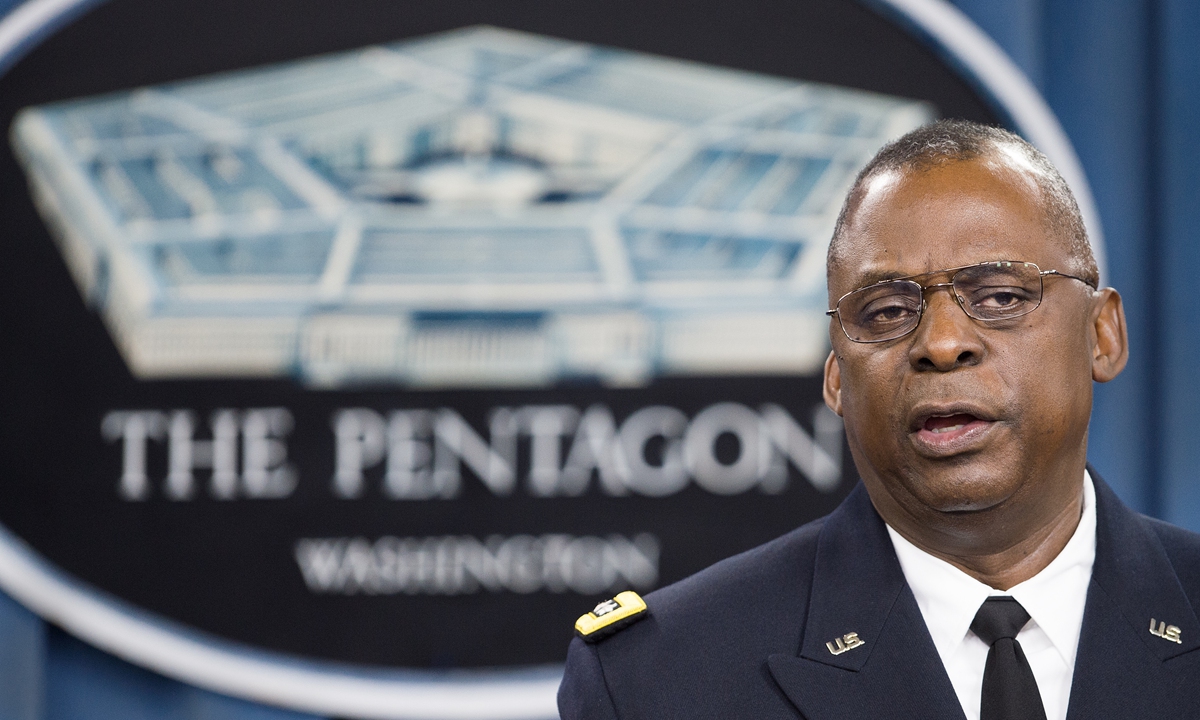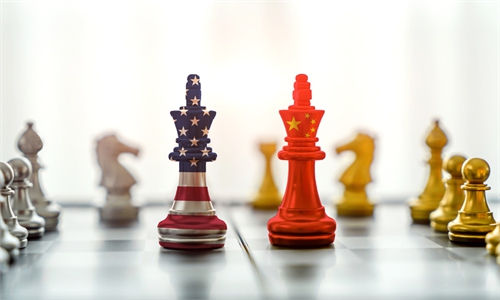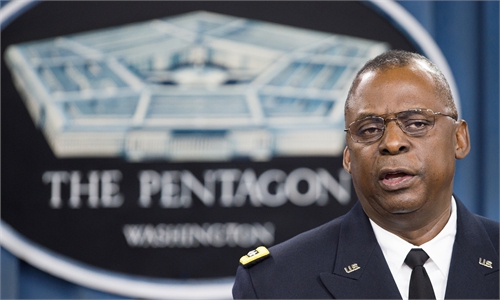Practical Philippines will not lean to US despite military pact restoration: observers

Lloyd Austin Photo: AFP
As US defense secretary Lloyd Austin wraps up his Southeast Asia trip with a final stop in the Philippines, the two sides restored the Visiting Forces Agreement (VFA), one of Austin's major goals, but observers pointed out that despite the US' military and security promises, the Philippines and others regional countries will remain practical and keep the balance in dealing with China and the US.
Austin departed from Hanoi for Manila and called on Philippine President Rodrigo Duterte late on Thursday in a 75-minute meeting that was "open and frank," Philippines News Agency reported on Friday, saying the two agreed to heighten their alliance via enhanced communication and greater cooperation, particularly on pandemic response, combating transnational crimes, trade and investment.
The Visiting Force Agreement, which offers the legal basis for US troops to function in the Philippines, was on their agenda, but no reports on that were released until Friday noon when Philippine defense chief Delfin Lorenzana held a joint press briefing after talks with Austin.
Lorenzana announced Duterte had walked back from the decision to terminate the VFA, and the pact is "in full force again."
The Thursday discussion and Friday announcement were interpreted by Chinese observers as demonstrating the Philippines' domestic split on their attitude toward the US. Duterte announced his plan to scrap the VFA in February 2020, but extended the suspension of the termination process three times due to domestic pressure.
"Duterte and the Philippine government have been cautious of leaning too close to the US, but the Philippine military would rather enhance cooperation and have always been tough on China," Tian Guangqiang, assistant research fellow with the National Institute of International Strategy at the Chinese Academy of Social Sciences, told the Global Times.
Chen Xiangmiao, an associate research fellow at the National Institute for South China Sea Studies, told the Global Times that it was one major concrete mission for Austin and he believed the two sides had made certain trade-offs over the VFA.
Chen warned that China should be alert for the US using the Philippines' opposition and military to stir up troubles in the South China Sea.
However, the VFA will not change the big picture of China-Philippines relations, as long as both sides remain calm on the most sensitive topic and keep distant from the US' trap of stirring up troubles in the region, Tian said.
During his stop in Hanoi, Austin claimed the US "does not ask Vietnam to choose between partners," but to ensure its allies and partners have the freedom and space to chart their own futures, according to Pentagon's press release.
That was just playing words games, Tian said, noting the essence of Austin's message was a cliché of the "China threat" theory, and the US wanted to fabricate such a threat to make regional countries feel anxious and seek US security promises.
Some analysts had predicted the possibility of Washington providing equipment assistance to Vietnam before Austin's visit, but there were no reports about details on such kind of cooperation.
Austin posted several tweets after meeting Vietnamese officials, with no mention of China.
Vietnam and the US have a low level of mutual trust given their fundamental differences in systems, and Hanoi will in no way act like the US in pistol pointing at China, analysts said.
Austin's destinations were carefully picked in the hope that his wooing remarks toward allies in Singapore, a diplomatically influential country in the bloc, could make a splash among all regional countries, and leverage Vietnam and the Philippines, two countries that are more likely to have clashes with China due to territorial disputes, to serve the US' geopolitical goals, Tian noted.
But to Austin's disappointment, the region will choose what maximizes their interests and the pandemic prevention as well as active economic and trade connections between Southeast Asia and China mean that the bloc will not join the US' chariot, the expert said.


